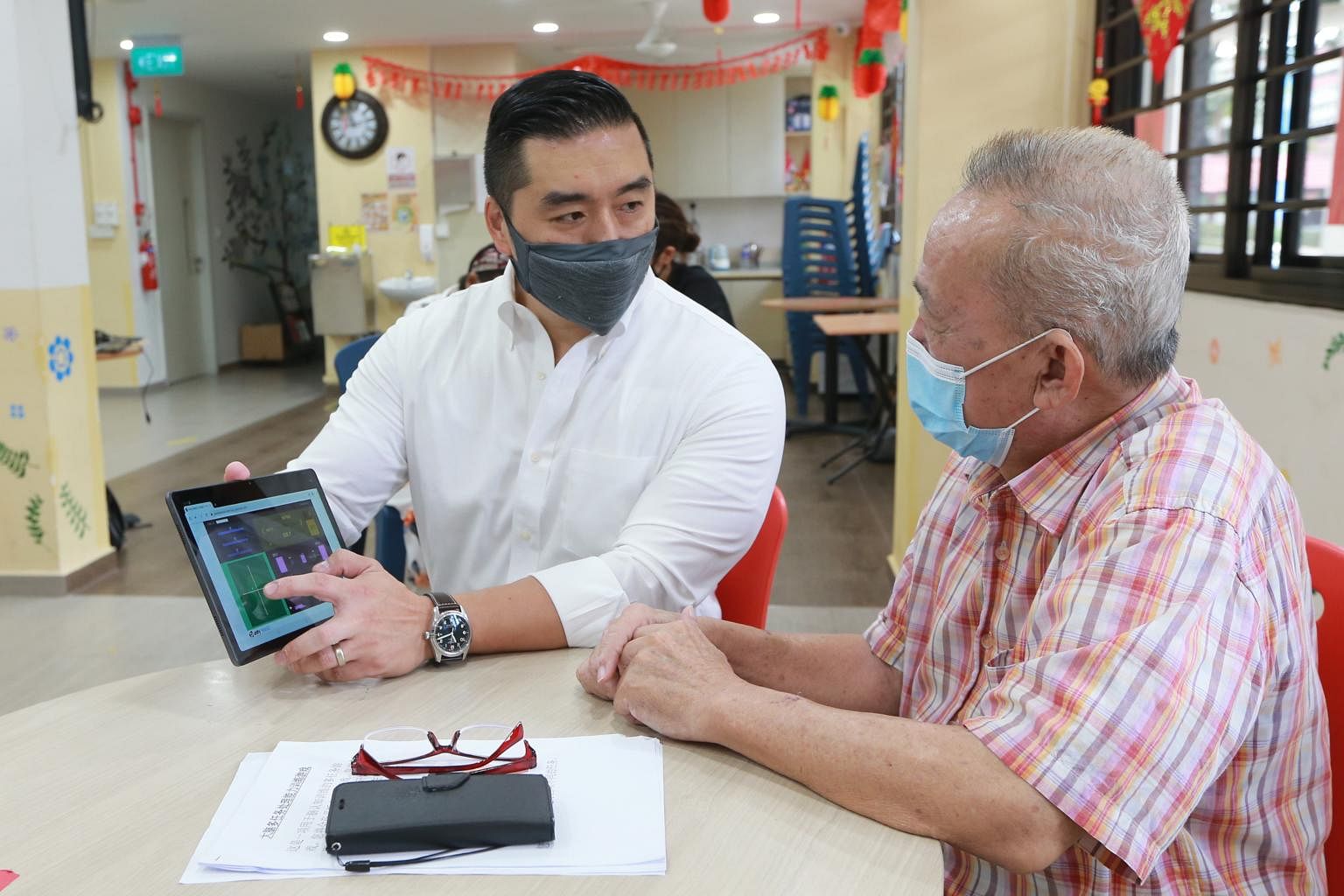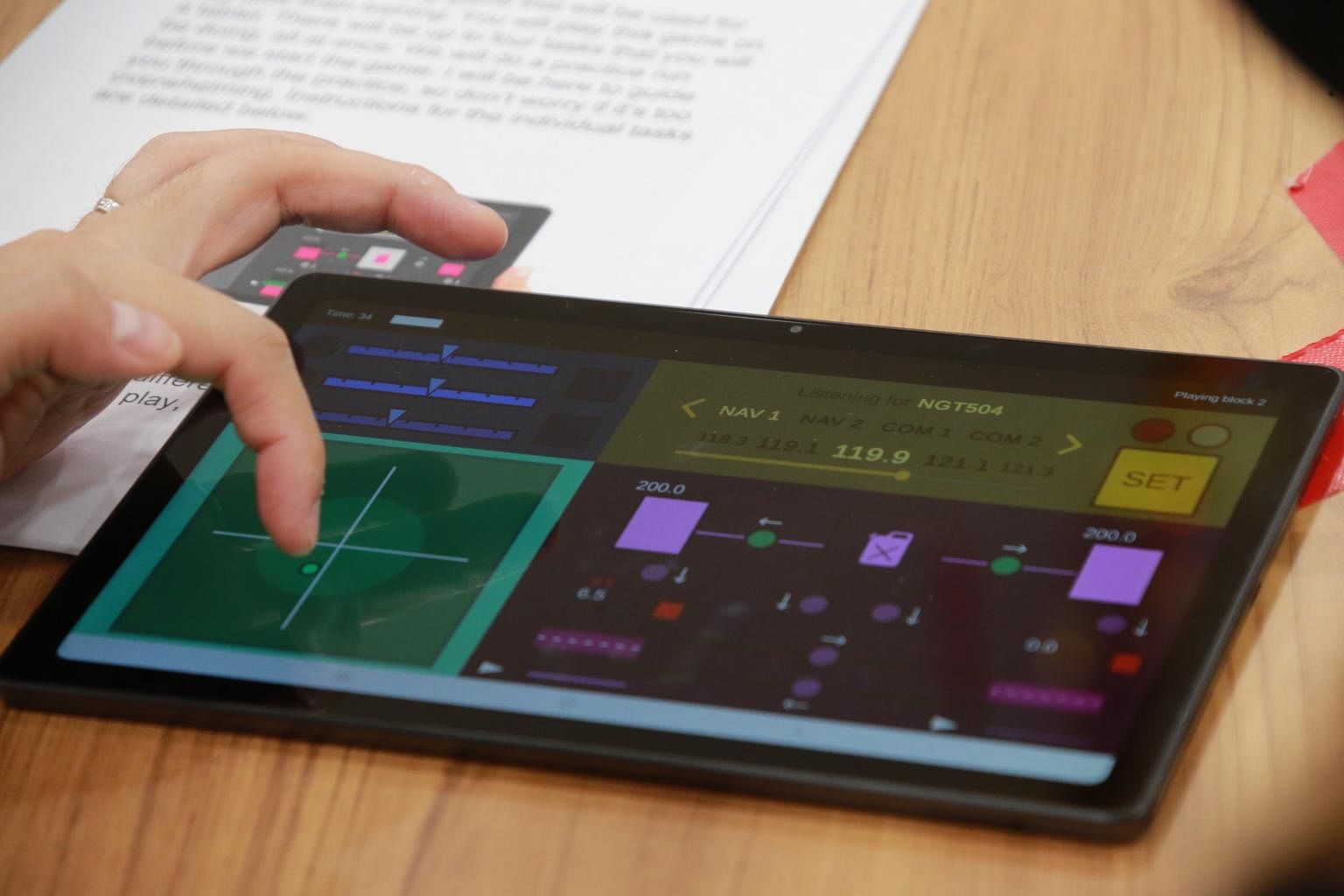Flight simulation game by NUS aims to help seniors combat cognitive decline
Sign up now: Get ST's newsletters delivered to your inbox

Players have to multi-task, such as hitting a specific target and responding to audio commands at the same time.
PHOTO: LIANHE ZAOBAO
SINGAPORE - Mr S. Rajakumar, 67, is familiar with physical therapy - he has gone for help for his hand, leg and shoulder over the years.
On Tuesday (Jan 26), he tried his hand at what he calls "brain therapy", through a tablet-based game that requires players to control a flight.
Players have to multi-task, such as hitting a specific target, refuelling oil tanks and responding to audio commands at the same time. Their scores after each session will determine the difficulty level of the next one.
Mr Rajakumar, a retiree who last worked for a statutory board, said he is not good with electronic gadgets, but picked up the game easily and enjoyed playing it.
"They taught us for three to five minutes, and asked us to practise. After 15 minutes, champion already."
He was one of four seniors who tried the game, which was developed by the National University of Singapore's Yong Loo Lin School of Medicine, in partnership with Marsiling Grassroots Organisations and Sunlove Marsiling Senior Activity Centre.
The game is aimed at combating cognitive decline in seniors. Researchers from the medical school's Institute for Digital Medicine believe that by tracking the scores of the users, they will be able to detect early indications of cognitive decline, resulting in earlier diagnoses and subsequent treatment.
Dr Alexandria Remus, one of the researchers, said: "It's tracking your performance over time. Maybe you're always scoring very high, but for maybe like a week you've been scoring really low, it would be an indication to go see a doctor because something's wrong."
The game is part of a study led by Professor Dean Ho from the institute.
The study, which started last March, is aimed at improving the ability to better predict and monitor diseases and illnesses, and with the use of tech, empower seniors to take control of their own health.
Prof Ho said that his team will be working closely with Sunlove Marsiling and Marsiling Grassroots Organisations to co-develop the game, ensuring its optimal and sustained use by the community in the future.
"We are going to learn together how to best design the instruction manuals, and the software itself, to improve its usability... and to promote long-term use of this digital therapeutics tool," he added.
Dr Ho also noted that data from the study will allow his team to better personalise digital therapy for its users, as the game software is able to continually monitor and alter the intensity of its tasks.

The team is currently working on engagement sessions to understand the community's needs.
Depending on the feedback gathered, the digital therapeutics tool could potentially see deployment by end-2021.
The team, for instance, may have to consider ways to incentivise users to keep playing.
Mr Aloysius Koh, 81, who played the game on Tuesday, said that he picked up the game quickly and did not find it challenging.
"It's just like an ordinary game to me, just as every day I'm playing Solitaire. But they said it would improve your brain, so I hope that it does," the retired marketing employee added.


